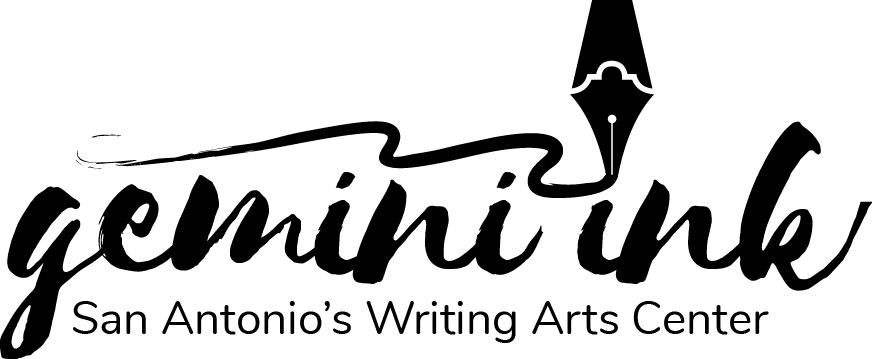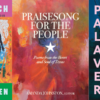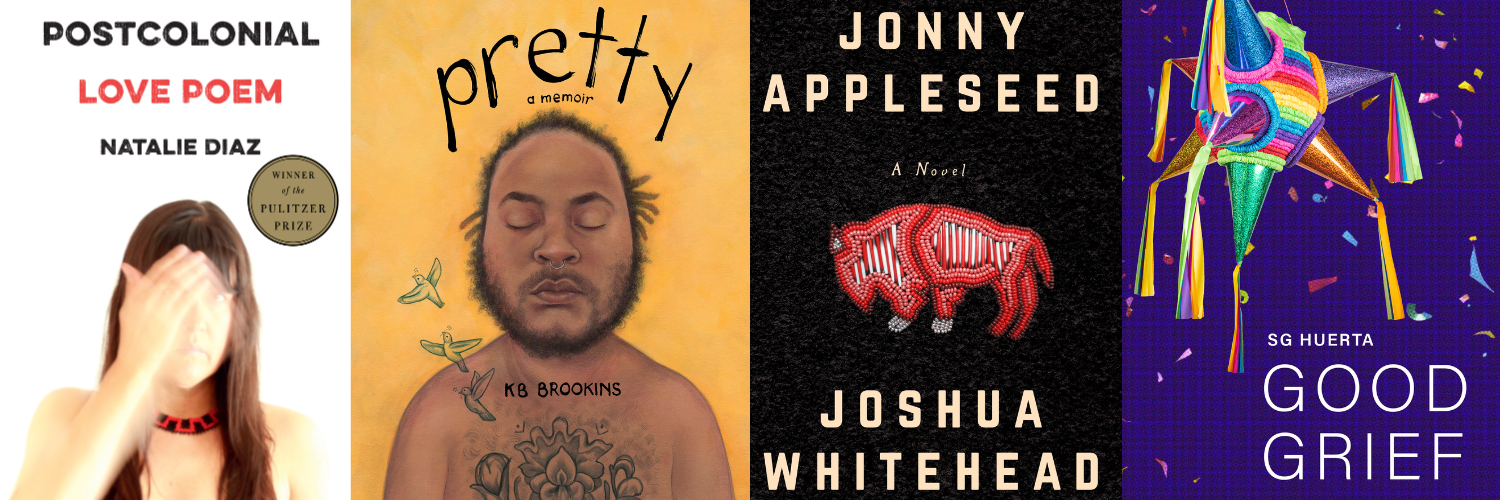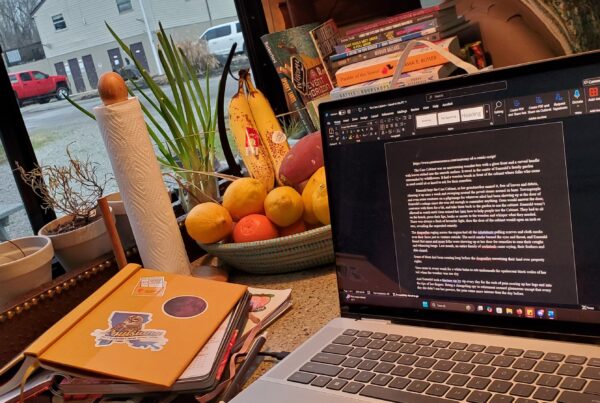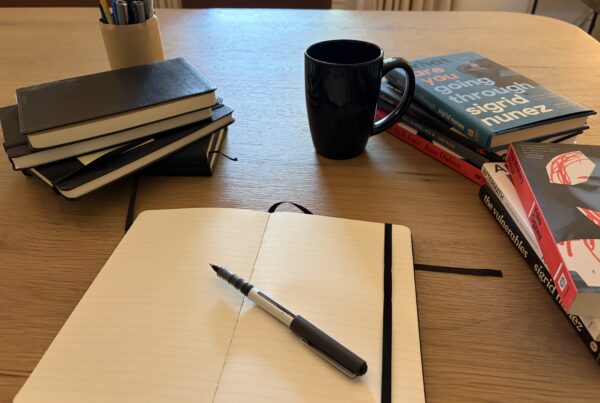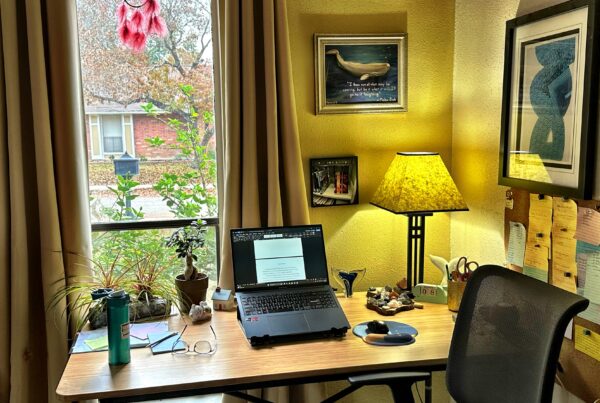The Writer’s Desk features the desks and writing practices of Gemini Ink faculty, visiting authors, teaching artists, volunteers, students, interns, staff, partners and more. Receive new posts in your inbox by subscribing to our newsletter at bit.ly/geminiinknewsletter.
Join Richard Santos on Thursdays, July 10, 17, 24 & 31, 2025, 6:30-8:30pm CST, via Zoom, for her workshop: On the Edge of Your Seat: Writing Mystery and Suspense. This course is open to writers of all genres and skill level, 18+ and will cover the common characteristics of effective mystery/suspense fiction and will set goals for their work in class. We’ll cover inciting incidents and protagonists, review plot points and antagonists, and explore how to create suspense and mystery in writing
Hello Richard! We’re so excited to have you teach your class on suspense next week. Has your preferred place to write changed over the years?
I’m lucky enough to have a big desktop computer with a widescreen and a window looking out on some trees, but usually my writing spaces have been much more prosaic. When I was in Washington, DC I spent some time writing in my cubicle in between projects. I’ve mostly had a laptop, which meant writing wherever I could find space–on my bed, on a couch, at a kitchen table. Although, despite having the laptop I’ve never really been a coffee shop writer. I can respond to emails and do all sorts of other work in coffee shops but writing has never worked. Although, one big exception to that was about 15 years ago when a loved one was in the hospital. I would write out two pages by hand every day in order to keep myself balanced. A lot of that work ended up in my first novel.
Do you have any habits or routines that you follow before writing?
I’m a fan of ending the day by writing the first sentence of the next day’s pages. Or you could write out an intention or plan for the next day like “Make sure the two characters meet” or “Fix the pages you wrote today.” This lets me start the next day focused and with some energy.
How important is it to you to have stability in your writing routine?
In an ideal world I would write for two hours every morning and then later in the day if I was feeling like it. But in this world I’ve mostly had to let go of the notion of a stable writing routine. When I was teaching high school I would do very little writing during the school year, but then I would use holidays and the summer to get a lot done. This is a slow way of writing but if you’re really dialed in during those breaks it can work. Once you have kids you also have to let go of the perfect routine. If you keep waiting for perfection then at some point you just won’t write.
 What is the one piece of writing advice that you value most?
What is the one piece of writing advice that you value most?
There’s so much out there! The most succinct advice I like is the quote attributed to Raymond Chandler. He said whenever he’s stuck he just has someone kick down the door with a gun in their hand. This is actually really flexible advice and can be used by any writer in any genre because it doesn’t have to be a door or a gun! If you’re not sure how to move a scene forward, what’s something unexpected that can happen?
What habit do you have now that you wish you had started much earlier?
I spent too much time at the start of my writing career worried about what I was writing. Meaning, is this a novel or a short story? Is this a good way to open page one? Is this a good first image? Really, you’ve just got to write and then you’ll figure out the structure and order for everything later. I think the quickest way to torpedo a project is by writing “Chapter One” at the top of a blank page.
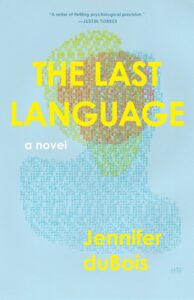 What’s the most interesting thing you’ve heard or read recently?
What’s the most interesting thing you’ve heard or read recently?
Some recent books I’ve really enjoyed: The Last Language by Jennifer duBois, This Part is Silent by SJ Kim, The Buffalo Hunter Hunter by Stephen Graham Jones, The Night Eaters by Marjorie Liu, The Night Guest by Hildur Knottsdottir.
Does good writing result from best practices, magic, or a bit of both?
Definitely both! Although that magic can only arrive through practice, patience, and openness to the process. Creative lightening can spark a project but to finish it you need some focus and the ability to forgive and move beyond all the wall you’ll run into.
If people want to learn more about your work, where should they go?
My out of date website is www.richardzsantos.com but I’m also fairly active on Bluesky and Instagram.

Richard Z. Santos’ debut novel, Trust Me, was a finalist for the Writer’s League of Texas Book Awards and was named one of the best debuts of the year by Crime Reads. He’s the editor of the anthology A Night of Screams: Latino Horror Stories. His fiction has been nominated for The Pushcart, Best of the Net, the International Thriller Writers Awards, and has appeared as a Distinguished Story in Best American Mystery and Suspense. His nonfiction and essays have appeared in Texas Monthly, The Rumpus, Los Angeles Review of Books, Like the Wind, and more. His work has appeared or is forthcoming in Austin Noir (Akashic Books), Lone Stars Rising (Harper Wave), Sandra Cisneros: Portraits of a Writer (Texas A&M Press), Untitled Latino Folklore Anthology (Flametree Press), and Ellery Queen Mystery Magazine. In a previous career, he taught in high schools and before that he worked for political campaigns, consulting firms, and labor union.
